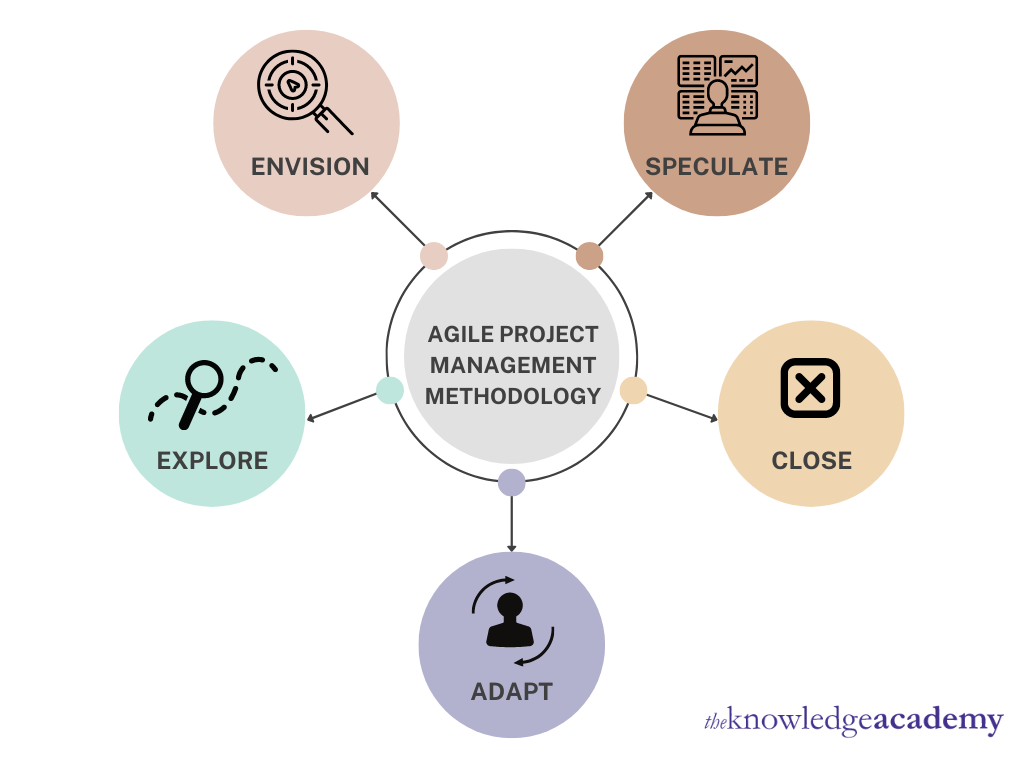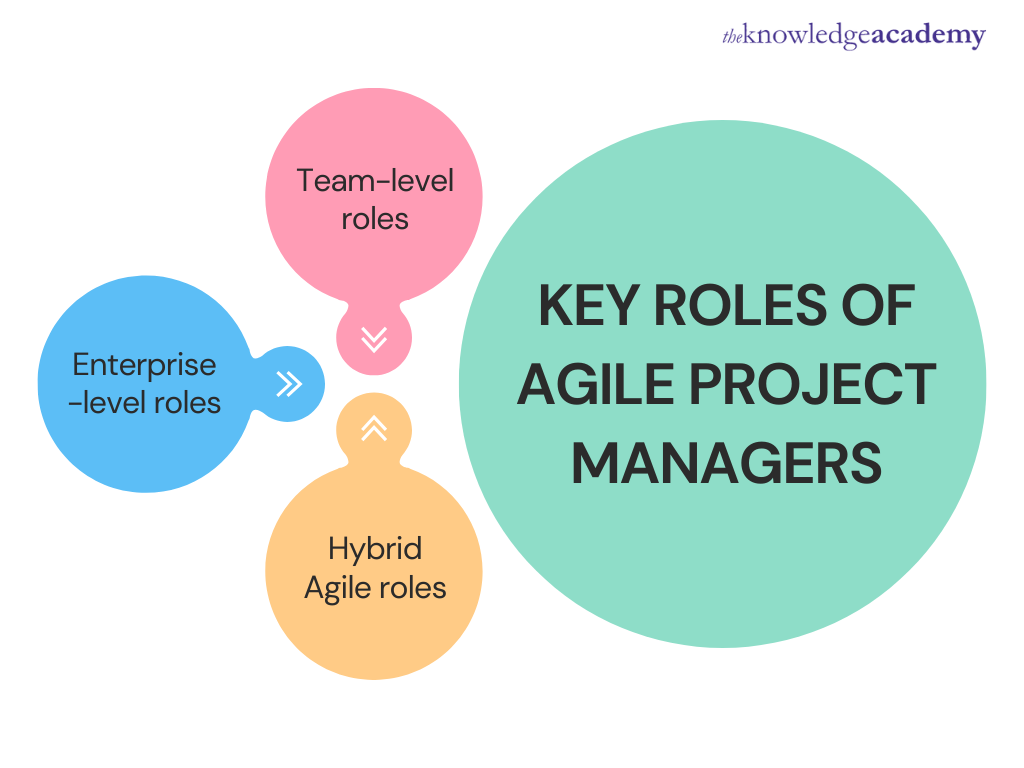We may not have the course you’re looking for. If you enquire or give us a call on 01344203999 and speak to our training experts, we may still be able to help with your training requirements.
Training Outcomes Within Your Budget!
We ensure quality, budget-alignment, and timely delivery by our expert instructors.

Unlike traditional Project Management methodologies, Agile methodology follows continuous improvements through sprints managing projects throughout the project lifecycle. Agile project teams follow a critical thought to speed up the project and are highly flexible to the uncertainties of the project. The Agile framework doesn't have a defined role for Project Managers to manage the project.
In this blog, we will discuss Agile thinking in Project Management.
Table of Contents
1) Agile Critical Thinking in Project Management
2) Next, Project Managers Role in Agile Projects
3) Conclusion
Learn more about Agile Project Management with our Agile Project Management Foundation course. Register now!
Agile Critical Thinking in Project Management
The Agile framework follows continuous integration, planning, testing and continuous development throughout the project lifecycle. It’s a software development methodology used to develop apps in increments. Rather than building a product at a stretch, they follow the increments to facilitate testing and feedback from the end users, businesses and stakeholders. Thus, the final product evolution by the Agile framework is of high-quality software.
In Traditional Project Management Methodologies:
a) The initial stage involves identifying the stakeholders and the project charter (2 stages)
b) Project planning consumes much time as it emphasises the scope of the project and corrective actions that lead to the final product (24 stages)
c) For execution, a well-defined project path is planned (8 stages)
d) Tracking and regulating the project and its performance (consumes 11 stages)
e) And at the end, it is the project closing procuring (2 stages)
The phases in Agile Project Management methodology are adaptative and quoted as modified Agile PMI life cycle (PMI- Project Management Institute).
a) Envision is the initial phase where the project vision is discussed based on the requirements of stakeholders and end users (1 stage).
b) Speculate phase works on iteration in backlog features like risk strategies and cost estimation (2 stages).
c) Explore is the phase where the project gets life, where optimal working is focused (2 stages).
d) Adapt is a looping phase. The product goes through a broad perspective and will be on a loop with speculate-explore-adapt phases until the desired product is obtained.
e) In the close phase, the product is submitted (2 stages).

You can observe that Agile Project Management (APM) takes minimal processes to complete the project compared to other traditional methodologies. APM promotes the incremental improvement and gives the team the freedom to inspect and modify their work during the process. With all these features, you can understand how a project can be effectively managed in an Agile environment.
Gain in-depth knowledge in Agile Framework with our Certified Scaled Agile Framework Leading SAFe 5.1 training and exam. Sign-in now!
Next, Project Managers Role in Agile Projects
The Agile world emphasises team empowerment and self-organisation rather than defining roles. In this way, all work is delivered at a quick pace. In such an environment, you may think whether Agile requires a Project Manager.
Yes, Agile does require a Project Manager, not to manage the project but to manage the agile process throughout the completion of the project. A Project Manager in an Agile system adds value by managing key aspects of the project and working on statements, risks, and other elements for enterprises. Agile as a self-organising team would face challenges in agile projects in what they should start with, decision-making challenges, authority in charge, boundaries in the team and other perceptions.To overcome this, a Project Manager is required to lead the team with respective roles.
In Agile Project Management, the Project Managers will manage the process.
a) Work on Vision – The Product Manager works on the communication and funding for the project.
b) Return of Investment (ROI) Management – The Product Manager measures the investment and expenses according to ROI goals.
c) Product Release – This is a product completion phase, and the Product Manager submits the project to the enterprise.
The key roles of Agile Project Managers vary based on the levels. They are:
a) Team-Level Roles: As an Agile Project Manager, you will work on two distinct roles. One as a consultant - Agile Project Manager works on the process and resources to improve the team efficiency. Another role is mentorship - to bring out the best in the project team.
b) Enterprise-Level Roles: In this role, the Agile Project Manager takes the lead and acts as a director to manage multiple teams and coordinate. The agile Project Manager is also in charge of challenges that come with complex projects.
c) Hybrid Agile Roles: It’s a combination of Agile and non-agile methodologies. This could be a challenging task as the Product Manager should be aware of both Agile and other traditional frameworks.

Therefore, Project Managers are essential in the Agile framework as they collaborate with Scrum Masters and product owners to establish productivity and performance. Organisations can effectively manage the demands of this role and simplify their agile transformations by understanding the function of the Project Manager in agile initiatives.
Become an Agile practitioner with our Agile Project Management Practitioner course. Check it out now!
Conclusion
This blog gave you an insight into Agile Project Management and the roles of Agile Project Managers. To learn more about Agile Project Management, check out Agile training courses offered by The Knowledge Academy.
Frequently Asked Questions
Upcoming Project Management Resources Batches & Dates
Date
 Agile Project Management Foundation & Practitioner (AgilePM®)
Agile Project Management Foundation & Practitioner (AgilePM®)
Mon 22nd Apr 2024
Mon 29th Apr 2024
Sat 4th May 2024, Sun 5th May 2024
Tue 7th May 2024
Mon 13th May 2024
Mon 20th May 2024
Tue 28th May 2024
Mon 3rd Jun 2024
Mon 10th Jun 2024
Sat 15th Jun 2024, Sun 16th Jun 2024
Mon 17th Jun 2024
Mon 24th Jun 2024
Mon 1st Jul 2024
Mon 8th Jul 2024
Sat 13th Jul 2024, Sun 14th Jul 2024
Mon 15th Jul 2024
Mon 22nd Jul 2024
Mon 29th Jul 2024
Sat 3rd Aug 2024, Sun 4th Aug 2024
Mon 5th Aug 2024
Mon 12th Aug 2024
Mon 19th Aug 2024
Tue 27th Aug 2024
Mon 2nd Sep 2024
Sat 7th Sep 2024, Sun 8th Sep 2024
Mon 9th Sep 2024
Mon 16th Sep 2024
Mon 23rd Sep 2024
Mon 30th Sep 2024
Sat 5th Oct 2024, Sun 6th Oct 2024
Mon 7th Oct 2024
Mon 14th Oct 2024
Mon 21st Oct 2024
Mon 28th Oct 2024
Sat 2nd Nov 2024, Sun 3rd Nov 2024
Mon 4th Nov 2024
Mon 11th Nov 2024
Mon 18th Nov 2024
Mon 25th Nov 2024
Mon 2nd Dec 2024
Mon 9th Dec 2024
Sat 14th Dec 2024, Sun 15th Dec 2024
Mon 16th Dec 2024







 Top Rated Course
Top Rated Course



 If you wish to make any changes to your course, please
If you wish to make any changes to your course, please


